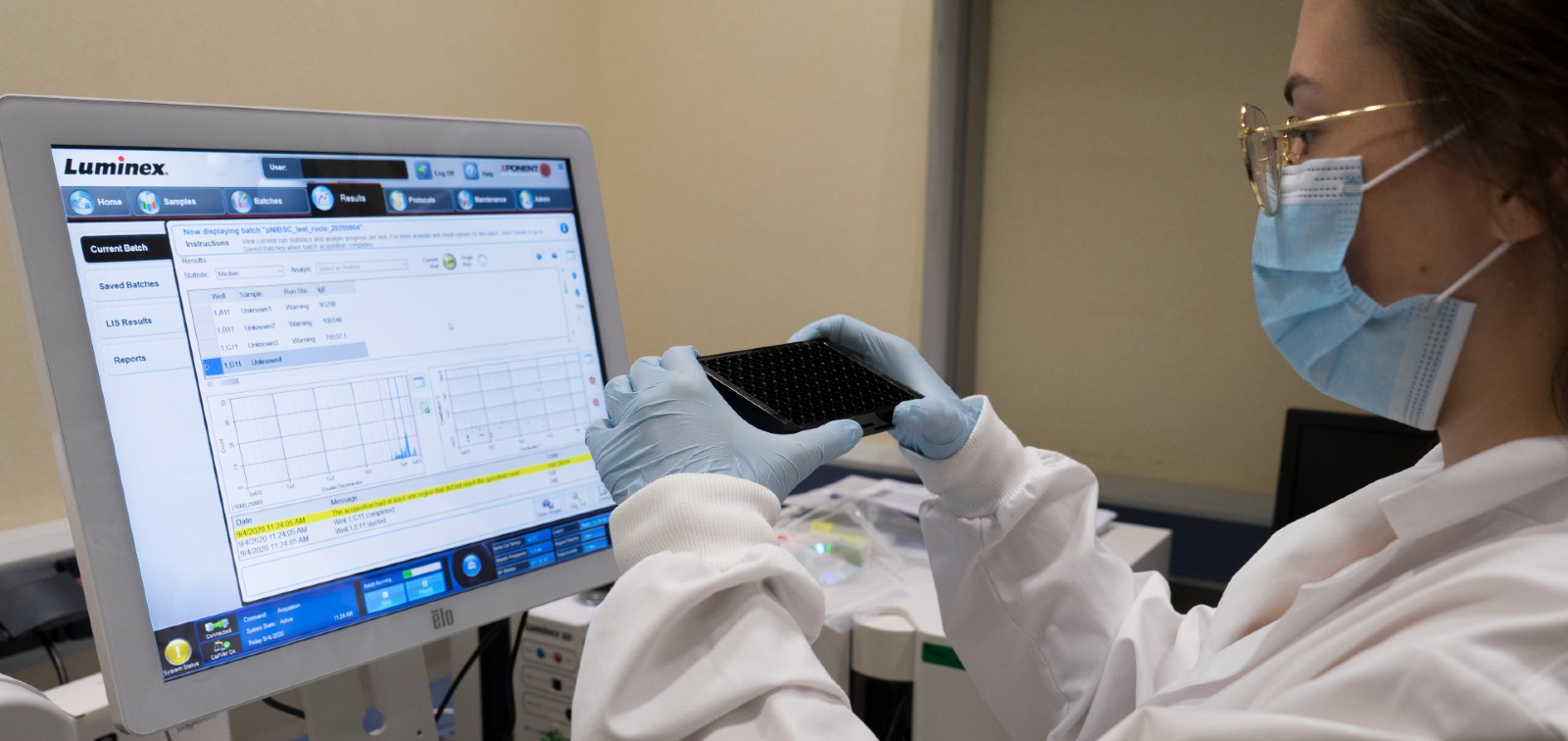New Study Identifies Highly Immunogenic and Specific Region of the SARS-CoV-2 N Protein
Findings provide insight into the immune response to the protein and cross-reactivity with common cold coronaviruses
19.02.2021
A study led by the Barcelona Institute for Global Health (ISGlobal), a centre supported by ”la Caixa”, with the participation of Hospital Clínic in Barcelona and Clínica Universidad de Navarra, among other institutions, has identified a region of the SARS-CoV-2 nucleocapsid (N) protein that shares little homology with the N proteins of the common cold coronaviruses and induces a good immune response. These findings have implications for diagnostics, seroprevalence studies and vaccine development.
The spike (S) proteins and N proteins of coronaviruses are known to be the main targets of the humoral immune response (i.e. antibodies) and are therefore used in most SARS-CoV-2 antibody tests. However, pre-pandemic blood samples have been found to contain antibodies capable of recognising the SARS-CoV-2 N protein, indicating some degree of cross-reactivity between the common cold coronaviruses and the novel coronavirus.
“This calls into question the utility of the entire N protein in seroprevalence studies,” explained Carlota Dobaño, lead author of the study. “In fact, little is known about the immune response induced by the different fragments of the SARS-CoV-2 N protein and the potential cross-reactivity with other coronaviruses.”
The researchers used Luminex technology to simultaneously measure antibodies that recognise the whole SARS-CoV-2 N protein or different fragments of it, as well as the N proteins of the common cold coronaviruses, in blood samples from three cohorts: 1) healthy adults recruited before the pandemic, 2) health care personnel at Hospital Clínic who participated in the SEROCOV study (and in whom cases of SARS-CoV-2 infection were mild or asymptomatic), and 3) patients with COVID-19 (47 with severe disease, hospitalised at the Clínica Universidad de Navarra, and 2 with mild disease).
The findings confirm that there is some level of cross-reactivity between the N proteins of SARS-CoV-2 and those of other coronaviruses. However, the study also identified a region of the N protein (known as the C-terminus) that is specific to SARS-CoV-2 and differs greatly from the common cold coronaviruses. The results also show that levels of antibodies against the N protein increase with the severity and duration of symptoms, and that IgG antibodies remain stable for at least three months.
“The fact that responses to the SARS-CoV-2 N protein are also detected in pre-pandemic serum limits the utility of this antigen in seroprevalence studies,” commented Luis Izquierdo, senior co-author of the study, “but one solution would be to use only the C-terminal fragment of the protein.”
“We do not yet know whether or not this cross-reactivity can protect against COVID-19, but our results suggest that this may be the case, at least for the cold coronavirus that most resembles SARS-CoV-2,” explained Gemma Moncunill, another senior co-author of the study.
The authors conclude that further research is needed to ascertain whether antibodies against the SARS-CoV-2 N protein protect against disease and determine whether they should be included in future vaccine designs.
Reference
Dobaño C, Santano R, Jiménez A et al. Immunogenicity and crossreactivity of antibodies to the nucleocapsid protein of SARS-CoV-2: utility and limitations in seroprevalence and immunity studies. Translational Research.



